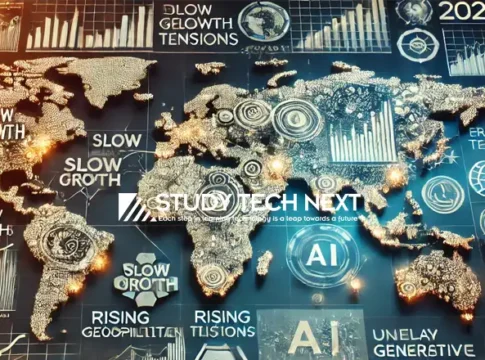The global economy is navigating a complex landscape, characterized by slow growth and heightened geopolitical tensions. The International Monetary Fund (IMF) forecasts a slight decline in global growth, projecting a rate of 2.9% for 2024, down from 3.0% in 2023. This slowdown is driven primarily by weaker performance in advanced economies, while emerging markets continue to show more resilience.
One of the biggest challenges facing the global economy is rising geopolitical tensions, particularly in regions critical to energy and food supplies. Conflicts in the Middle East and Eastern Europe have disrupted global markets, especially in oil and shipping, raising concerns about potential inflationary impacts and reduced global growth. Additionally, China’s economy, a significant driver for many developing nations, is also slowing, further contributing to global economic uncertainty.
On the positive side, inflationary pressures have begun to ease in many regions, and there are hopes that financial conditions will loosen by the end of the year. However, challenges such as rising debt levels, economic fragmentation, and the ongoing effects of high interest rates are expected to limit global economic expansion into 2025.
Overall, the outlook remains cautious, with economists divided on whether the global economy will stabilize or face further volatility in the near term.
Global Growth Slowing: The IMF projects global growth to decline to 2.9% in 2024, down from 3.0% in 2023, driven by weaker performance in advanced economies while emerging markets show more resilience.
Geopolitical Tensions: Conflicts in critical regions, especially in the Middle East and Eastern Europe, are disrupting global energy and food supplies, stoking concerns about inflation and reduced global output.
China’s Economic Slowdown: China, a key driver for many developing economies, is experiencing one of its slowest growth periods since 1990, which could negatively impact global trade and commodity-exporting nations.
Inflation Easing: Inflationary pressures are starting to ease, with expectations of looser financial conditions by the end of 2024. However, rising debt levels and high interest rates continue to constrain growth.
Geoeconomic Fragmentation: Economists predict an increase in trade restrictions and economic fragmentation, further deepening the divide between advanced economies and low-income nations.
Impact of AI: Generative AI is expected to significantly influence productivity, particularly in advanced economies, helping offset labor shortages and driving innovation.

